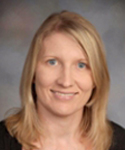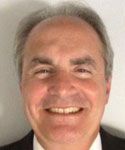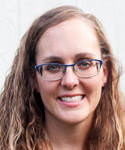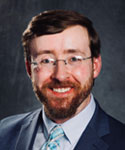Deciphering the Decline of New CPA Supply
–
August 4, 2022

The accounting profession is at a crossroads — dynamic technological and functional changes are afoot while there is a dearth of students lining up to become certified public accountants (CPAs). We asked undergraduate and graduate accounting educators some tough questions about what they are hearing on the ground from students about the challenges in starting on the path to CPA.
Is the 150-hour credit requirement to obtain a license in New Jersey too much of a burden for students? What feedback are you hearing from students about the value of the CPA license?
Sarah O’Rourke, CPA | Rutgers University
The 150-hour credit requirement may scare off a few students, but I think most students who are interested in accounting are not deterred by the requirement. Many students finish the 150 hours during their undergraduate education — they either double major or just take miscellaneous extra credits each semester or some come in with AP credits. When students go this route, time and cost are not as much of an issue — they are often finishing the 150 credits within about four years and there is not a significant extra cost. However, I worry that some students are not getting the full benefit of their education with this approach — cramming so many classes into four years.
I wish that more students would pursue a master’s degree in the completion of their 150 credit hours — I’ve always said that if you are going to take 30 additional credits, you might as well turn that into a degree with a focus on accounting or business! But with the master’s degree, I do think time and cost are a deterrent — some students don’t want to spend the extra time to complete the degree, or the cost is simply too much.
But schools and firms can encourage students — schools can make students aware of the value of a master’s program and provide scholarships to help defray the cost. And employers can also provide scholarships and tuition reimbursement, as well as the flexibility to allow their new hires to pursue a master’s degree while working, if necessary.
Brigid D'Souza, CPA, MBA | St. Peter's University
The main reasons I see students not wanting to pursue the CPA are cost, delaying the start of their careers in full-time salaried positions and the lack of awareness around the benefits to having the CPA license and all it can offer. First, pursuing the extra 30 credits is a cost burden for students who may not have the means to pay for extra courses or a full graduate degree or they may not want to take on more student debt to pay for that coursework.
Secondly, some of the full-time jobs (e.g. tax or audit positions at some accounting firms) require the 150-credits for a full-time offer, which delays the full-time work experience and related salary potential.
Third, awareness is an issue. We need to be educating students as early as middle or high school about careers in accountancy. There are multiple benefits. As a college professor, I can see a clear advantage possessed by students who have had high school exposure in terms of the skills they carry into the introductory classes on day one. This positions them for academic success. But there is a second, potentially more impactful factor here which is imagination about the potential of a career in accounting. If students can imagine, and understand, the job opportunities that await them if they commit to the CPA track, then they may be less inclined to stay off (or jump off) the track and pursue other majors. Internships can also spark this imagination and interest. I have found that when students can see how accounting and tax can be applied practically, they can imagine the possibilities more concretely — from the interesting type of work to the skills-building (including technology as an integral skill with their accounting skills) and more.
Dr. Barry R. Palatnik, CPA, MBA | Stockton University
The Illinois CPA society issued a report titled, "A CPA Pipeline Report: Decoding the Decline." In this report the focus was on five factors causing concern for the disruption in the CPA pipeline: (a) challenges, (b) perception, (c) value, (d) ROI and (e) influencers. One of the challenges is the additional 30 credits required for licensing CPAs.
The purpose of occupation licensing is to assure the public that certain occupations maintain a quality workforce. Most of the occupational licensing requires the licensee to have education, work experience and pass an exam before being granted practicing rights. However, Stephenson and Meehan (2021) explained occupation licensing may create barriers for occupations while increasing the costs of services, but they found no increase in quality of service. Stephenson and Meehan examined specifically how the 120-150 CPA Licensing Rule has an impact on passing the CPA Exam. Their findings revealed states that allowed candidates to sit for the exam with 120 credits had a 25 percent increase in first-time candidates attempting the Exam when 150-credit hours were required. Lowering the educational credit hours to 120 did not cause any changes in pass rates. Ultimately using the 150-credit hour requirement was only a barrier for entry rather than enhancing the quality of CPAs.
Many of the states have already reduced the 150-credit hour to 120 to qualify for sitting for the exam. This strategy does have some benefits since students can take the exam soon after graduating from college while all their accounting knowledge is still fresh. This is especially true if students choose to take non accounting/business courses to fulfill the additional 30 credit hours.
Dr. Sean Stein Smith, DBA, CPA, CMA, CGMA, CFE | Lehman College
Based on my conversations with students at several institutions the 150-hour credit requirement does not seem to be the primary reason discouraging students from pursuing a CPA. Compared to other professions and professional licenses, the 150-hour credit requirement is not unusual. Rather the issues seem to rest more with the perceived value of obtaining a CPA and an incorrect perception of the career opportunities for individuals holding the CPA license. Put simply, we need to develop a better answer to “Why should I bother getting the extra 30 credit hours?”
The main feedback that I hear is, fortunately, something that educators and practitioners can address: the perception that the CPA is declining in value. Updating and informing students about the wide range of possibilities and backing it up with real-world examples (of which there are many), goes a long way to changing the perception of the CPA license.
What alternatives to the 150-hour credit requirement can you suggest?
Brigid D’Souza, CPA, MBA
A recent meeting discussion from the New Jersey State Board of Accountancy signals a possible alternative approach which is to obtain the extra credits through a paid internship program. This will both bring down the cost of the requirement but also place students into that CPA pathway sooner, thus keeping the license in scope (which is what we ultimately want aspiring CPAs to do.)
Dr. Barry R. Palatnik, CPA, MBA
To consider any potential change to the 150-credit rule, we can explore other occupations such as nursing which requires occupational licensing to practice. Nursing students can become a Registered Nurse (RN) after successfully completing a two-year associate degree and passing a state nursing exam. However, healthcare Institutions may be reluctant to hire these nurses unless enrolled in an RN to bachelor’s degree in nursing (BSN) program. The overall nursing licensing requirement may not fit well for the accounting profession, but it gives us insight to explore and look for opportunities to improve the pipeline.
Dr. Sean Stein Smith, DBA, CPA, CMA, CGMA, CFE
This answer can take the form of innovative curriculum changes, or new ways allowing students to earn credits. All approaches should be considered carefully.
Do you believe students have a negative image attached to being a CPA? If so, can it be changed and how?
Sarah O’Rourke, CPA
I don’t think students have a negative view of the CPA license, but some students might view accounting as less relevant or useful than other majors, such as supply chain or business analytics and information technology. Students may even think that accounting roles will eventually be replaced by artificial intelligence.
Dr. Sean Stein Smith, DBA, CPA, CMA, CGMA, CFE
Some, but not all, students tend to hold a view of a CPA as only being able to perform audits or complete tax returns. These are definitely career paths that can be pursued, but increasingly represent a smaller percentage of total career opportunities and options. It is the responsibility of the people in the profession, including practitioners and educators alike, to highlight the sheer number of career opportunities that are possible via a CPA. Cybersecurity; crypto and blockchain; artificial intelligence and automation; environmental, social and governance (ESG); and continuous and non-financial reporting are just some of the areas in which CPA holders can pursue careers.
How can college and/or high school curriculums change to meet the requirements of the modern CPA?
Amy Lysak, CPA, Ph.D. | Rowan University
Existing curriculums should be reexamined to identify opportunities that highlight and foster analytical and critical thinking skills, which are expected of the modern CPA. Whereas underlying accounting theory is necessary as a foundation, developing curriculum and content that is more practical or application-based and that enables students to think critically and analyze information is essential. For example, incorporating technology and having case studies that are hands-on and completed in the classroom engage students and reinforce underlying accounting concepts. This approach can be supplemented with slides and mini lectures as new topics are introduced. In my experience, students seem to respond better to the material when engaged in the classroom through real-life examples, cases and problem-solving with technology.
Sarah O’Rourke, CPA
The answer here may be curriculum updates — today’s accounting professionals need more than mere accounting fundamentals. As educators, we need to ensure the accounting curriculum delivers the technology and soft skills our students need, and I think we must make students aware that the accounting curriculum offers these valuable skills.
Dr. Sean Stein Smith, DBA, CPA, CMA, CGMA, CFE
The best curriculum changes I have seen (and developed myself) have highlighted the potential of working in, and with, cutting edge technologies on topics that matter to students. If the connection can be made between the CPA license and these opportunities, I have found these curriculum changes to be more successful than others.
 | Amy LysakAmy Lysak, CPA, Ph.D., is an assistant professor in the Department of Accounting and Finance in the Rohrer College of Business at Rowan University. |
 | Barry R. PalatnikDr. Barry R. Palatnik, Ed.D, CPA, MBA, is an associate professor of accounting at Stockton University. He is a member of the NJCPA and serves as president of the Atlantic/Cape May Chapter. More content by Barry R. Palatnik: |
 | Brigid D'SouzaBrigid D’Souza, CPA, MBA, is an assistant professor and CPA advisor at the Frank J. Guarini School of Business at Saint Peter’s University. She is a member of the NJCPA and can be reached at bdsouza@saintpeters.edu. More content by Brigid D'Souza: |
 | Sarah L. O'RourkeSarah L. O’Rourke, CPA, is an assistant professor of professional practice in the Department of Accounting & Information Systems at Rutgers Business School-New Brunswick. She is a member of the NJCPA and can be reached at slilley@business.rutgers.edu. More content by Sarah L. O'Rourke: |
 | Sean D. Stein SmithDr. Sean Stein Smith, CPA, DBA, CMA, CGMA, CFE, is a professor at the City University of New York – Lehman College. He is a member of the NJCPA Board of Trustees, a New Jersey CPA Political Action Committee Trustee and participates on several interest groups. More content by Sean D. Stein Smith: Learn more from Sean D. Stein Smith: |